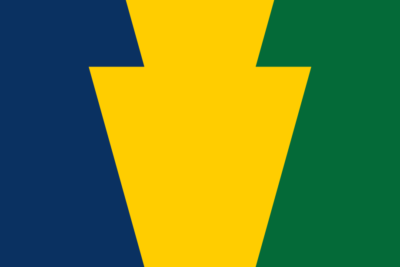
Are Succulents Safe for Rabbits to Eat?
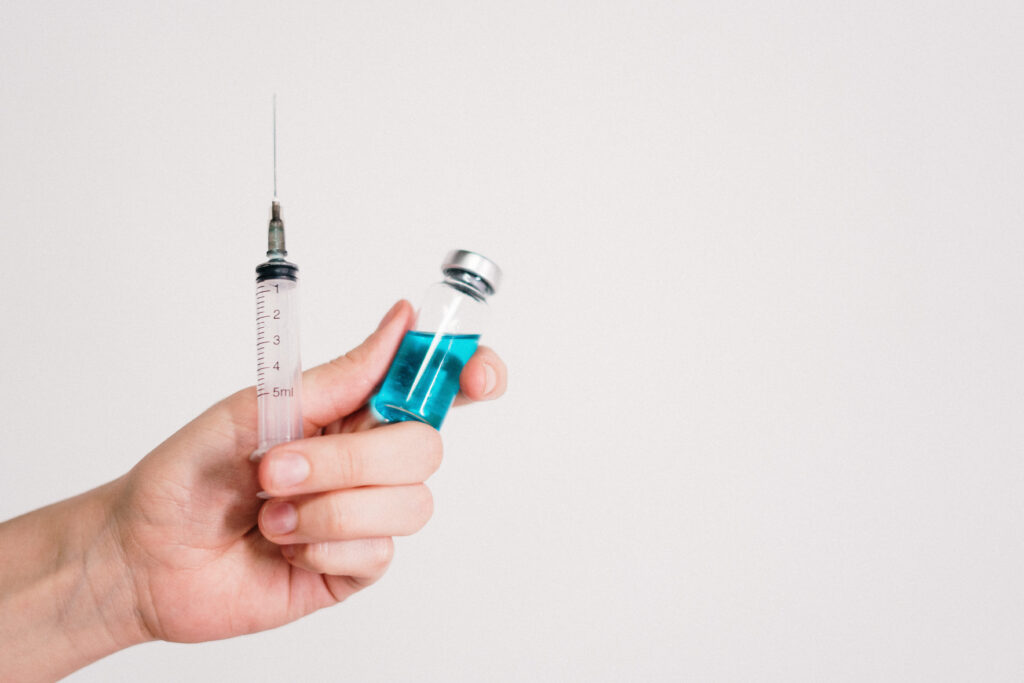
When it comes to taking care of pet rabbits, providing a proper diet is crucial for their health and well-being. While rabbits are primarily herbivores and can eat a variety of fruits, vegetables, and grasses, it is important to be mindful of what plants are safe for them to consume. One type of plant that has gained popularity in recent years is succulents. These drought-resistant plants are known for their unique and often fleshy leaves, and many people enjoy keeping them as houseplants. However, it is important to ask the question: are succulents safe for rabbits to eat?
We will explore the topic of whether succulents are safe for rabbits to eat. We will discuss the potential risks and benefits of rabbits consuming succulents, as well as provide a list of succulent plants that are safe for rabbits to nibble on. Additionally, we will offer some tips on how to create a safe environment for your rabbit if you have succulents in your home. By the end of this article, you will have a better understanding of whether or not succulents can be a part of your rabbit's diet and how to ensure their safety around these plants.
- Yes, succulents are generally safe for rabbits to eat
- However, not all succulents are safe for rabbits to consume
- It is important to research which specific types of succulents are safe for rabbits before feeding them
- Safe succulents for rabbits include hens and chicks, echeveria, and sedum
- Always introduce new foods slowly to your rabbit's diet to avoid digestive issues
- Remove any toxic or harmful parts of the succulent before feeding it to your rabbit
- Monitor your rabbit closely after introducing succulents to their diet to ensure they tolerate it well
- If your rabbit shows any signs of discomfort or illness after consuming succulents, consult a veterinarian
- Remember that succulents should only be a small part of your rabbit's overall diet, which should primarily consist of hay, fresh vegetables, and a limited amount of pellets
- Frequently Asked Questions
Yes, succulents are generally safe for rabbits to eat
When it comes to feeding rabbits, it's important to choose safe and nutritious foods. Many rabbit owners wonder if succulents, with their unique appearance and water-storing abilities, are safe for their furry friends to consume. The good news is that most succulents are indeed safe for rabbits to eat.
However, it's important to note that not all succulents are created equal. While some succulents are safe for rabbits, others may be toxic and should be avoided at all costs. It's crucial to do your research and ensure that the succulents you feed your rabbit are non-toxic.
Safe succulents for rabbits
Here is a list of succulents that are generally considered safe for rabbits to eat:
- Hens and Chicks (Sempervivum spp.): These hardy succulents are safe for rabbits and can be a tasty addition to their diet.
- Spider Plant (Chlorophytum comosum): The spider plant, with its long, arching leaves, is not only safe for rabbits but also provides them with essential nutrients.
- Burro's Tail (Sedum morganianum): This trailing succulent is safe for rabbits and can be a great source of hydration for them.
Toxic succulents to avoid
On the other hand, there are succulents that are toxic to rabbits and should be kept far away from them. Some toxic succulents include:
- Jade Plant (Crassula ovata): This popular houseplant is toxic to rabbits and should be kept out of their reach.
- Aloe Vera (Aloe barbadensis): While aloe vera has numerous benefits for humans, it is toxic to rabbits and should not be fed to them.
- Pencil Cactus (Euphorbia tirucalli): This succulent, also known as "Firestick," contains toxic sap that can cause harm to rabbits if ingested.
It's always best to consult with a veterinarian before introducing any new foods into your rabbit's diet, including succulents. They can provide specific guidance based on your rabbit's health and specific needs.
 The Benefits of Using Coffee Grounds for Succulent Growth and Health
The Benefits of Using Coffee Grounds for Succulent Growth and HealthRemember, while succulents can be a safe and enjoyable treat for rabbits, they should never replace their primary diet of hay, fresh vegetables, and a small amount of pellets. Variety is key to providing a well-rounded diet for your furry friend.
However, not all succulents are safe for rabbits to consume
However, not all succulents are safe for rabbits to consume
While succulents are known for their low-maintenance and hardy nature, it is important to exercise caution when it comes to feeding them to your furry friend. While some succulents are safe for rabbits to eat, others can be toxic and harmful to their health.
Rabbits have sensitive digestive systems
Rabbits have delicate digestive systems that are designed to process fibrous and leafy greens. They thrive on a diet that is high in fiber and low in carbohydrates. However, succulents, with their thick and fleshy leaves, may not be suitable for rabbits to consume in large quantities.
Toxic succulents for rabbits
It is crucial to be aware of the succulents that are toxic to rabbits. Some common succulents that should be avoided include:
 Succulent Leaves: Health Risks and Benefits of Eating
Succulent Leaves: Health Risks and Benefits of Eating- Jade plant (Crassula ovata)
- Aloe vera (Aloe barbadensis)
- Kalanchoe (Kalanchoe spp.)
- Euphorbia (Euphorbia spp.)
These succulents contain substances that can cause digestive issues, liver damage, or even be fatal if ingested by rabbits.
Safe succulents for rabbits
While it is important to be cautious, there are succulents that are safe for rabbits to eat in moderation. These include:
- Hen and chicks (Sempervivum spp.)
- Prickly pear cactus (Opuntia spp.)
- Hens and chicks (Echeveria spp.)
- Burro's tail (Sedum morganianum)
These succulents are generally safe for rabbits and can be included as occasional treats in their diet.
Introduce new foods gradually
It is important to remember that rabbits have sensitive digestive systems, and sudden changes in their diet can lead to digestive issues, such as diarrhea or bloating. If you decide to introduce a new succulent to your rabbit's diet, do so gradually and in small quantities to allow their system to adjust.
While some succulents can be safe for rabbits to eat, it is crucial to research and identify which ones are suitable for their consumption. Always prioritize your rabbit's health and consult with a veterinarian if you are unsure about including succulents in their diet.
 The Benefits and Risks of Using Coffee for Succulents: Explained
The Benefits and Risks of Using Coffee for Succulents: ExplainedIt is important to research which specific types of succulents are safe for rabbits before feeding them
When it comes to the well-being of our furry friends, it is crucial to be aware of what they can and cannot eat. Rabbits, in particular, have a sensitive digestive system and require a balanced diet to stay healthy. While succulents can make beautiful additions to your home decor, it is essential to research which specific types of succulents are safe for rabbits before offering them as a snack.
Why are some succulents unsafe for rabbits?
Although succulents are known for their ability to store water in their leaves, not all varieties are safe for consumption by rabbits. Some succulents contain toxic compounds that can cause digestive issues, organ damage, or even be fatal for rabbits if ingested.
Safe succulents for rabbits:
1. Hens and Chicks (Sempervivum spp.): This common succulent is safe for rabbits to nibble on. It has a mild taste and texture that many rabbits enjoy. However, moderation is key, as excessive consumption can still lead to digestive disturbances.
2. Prickly Pear Cactus (Opuntia spp.): Rabbits can safely eat the pads and fruits of certain varieties of Prickly Pear Cactus. However, it is essential to remove the spines and thorns before offering them to your furry friend.
 Can Succulents Enhance Indoor Air Quality by Producing Oxygen?
Can Succulents Enhance Indoor Air Quality by Producing Oxygen?3. Spider Plant (Chlorophytum comosum): While not a succulent in the strictest sense, this popular houseplant is safe for rabbits. Rabbits can enjoy nibbling on the leaves without any harmful effects.
Succulents to avoid:
1. Aloe Vera (Aloe barbadensis): This commonly found succulent contains compounds that can be toxic to rabbits. It is best to keep it out of their reach.
2. Jade Plant (Crassula ovata): Despite its attractive appearance, the Jade Plant can be harmful to rabbits if ingested. It contains compounds that can cause digestive upset and potential organ damage.
3. Kalanchoe (Kalanchoe spp.): This vibrant succulent is not safe for rabbits. It contains compounds that can be toxic and should be avoided.
Conclusion:
Before offering succulents to your rabbit, it is crucial to do your research and ensure that the specific variety is safe for consumption. Always introduce new foods gradually and in moderation, as rabbits can have sensitive stomachs. If you are unsure about whether a particular succulent is safe for your rabbit, it is best to consult with a veterinarian specializing in exotic animals.
 Can Coffee Grounds Boost Succulent Growth as Fertilizer?
Can Coffee Grounds Boost Succulent Growth as Fertilizer?Safe succulents for rabbits include hens and chicks, echeveria, and sedum
When it comes to providing a healthy and balanced diet for your pet rabbit, it's important to consider what plants are safe for them to eat. While rabbits primarily thrive on hay, vegetables, and pellets, you may be wondering if it's safe for them to munch on succulent plants as well. In this article, we'll explore which succulents are safe for rabbits to eat and how to incorporate them into their diet.
Succulents that are safe for rabbits to eat:
- Hens and Chicks (Sempervivum spp.): Hens and chicks are low-growing succulent plants that are safe for rabbits to eat. They have a mild taste and provide a good source of fiber, vitamins, and minerals.
- Echeveria: Echeveria is another succulent variety that rabbits can safely enjoy. These plants have fleshy leaves and come in various shapes and colors. They are non-toxic to rabbits and can be a tasty and nutritious addition to their diet.
- Sedum: Sedum plants, also known as stonecrop, are safe for rabbits to eat. They are often found in gardens and have thick, juicy leaves. Sedum provides rabbits with hydration and can be a refreshing treat during hot weather.
It's important to note that while these succulents are safe for rabbits to eat, they should be offered in moderation as part of a varied diet. Succulents should not replace the main components of a rabbit's diet, such as hay and vegetables.
When introducing succulents to your rabbit's diet, make sure to wash them thoroughly to remove any dirt or pesticides. It's also recommended to offer small amounts initially to see how your rabbit reacts and if they have any adverse effects.
On the other hand, there are several succulent plants that are toxic to rabbits and should be avoided. These include aloe vera, jade plant, and certain types of cacti. It's crucial to research and ensure that any plants you provide for your rabbit are safe for them to consume.
While rabbits primarily rely on hay, vegetables, and pellets for their nutrition, certain succulents can be safely incorporated into their diet as an occasional treat. Hens and chicks, echeveria, and sedum are among the succulents that rabbits can enjoy. Remember to introduce them gradually and in moderation, and always prioritize the main components of their diet for their overall health and well-being.
Always introduce new foods slowly to your rabbit's diet to avoid digestive issues
Are Succulents Safe for Rabbits to Eat?
 Using Coffee Grounds as Succulent Fertilizer: Benefits & Guidelines
Using Coffee Grounds as Succulent Fertilizer: Benefits & GuidelinesAs a responsible rabbit owner, it's essential to ensure that your furry friend's diet is safe and healthy. While rabbits primarily thrive on a diet consisting of hay, fresh vegetables, and pellets, it's natural to wonder if succulents can be added to their menu. Succulents are popular plants known for their ability to store water in their leaves, stems, or roots.
However, when it comes to rabbits, caution should be exercised. While some succulents are safe for rabbits to consume in moderation, others can be toxic and should be avoided altogether. It is crucial to do your research and understand which succulents are safe options for your rabbit's diet.
Safe Succulents for Rabbits
Here are some succulents that are generally considered safe for rabbits:
- Hens and Chicks (Sempervivum spp.): These small, low-growing succulents are safe for rabbits and can be occasionally offered as a treat. However, it's important to note that moderation is key, as overconsumption can lead to digestive issues.
- Echeveria: With their fleshy leaves and vibrant colors, echeverias are non-toxic to rabbits. While they can be offered as a small portion of a varied diet, too much echeveria consumption can lead to loose stools or stomach upset.
- Opuntia (Prickly Pear Cactus): This succulent plant is safe for rabbits and can be a tasty addition to their diet. However, only feed them the flat pads of the cactus, avoiding the spines.
Succulents to Avoid
While some succulents are safe for rabbits, there are others that should be completely avoided. These include:
- Aloe Vera: Although aloe vera has various health benefits for humans, it is toxic to rabbits and can cause severe gastrointestinal upset if ingested.
- Jade Plant: Also known as Crassula ovata, the jade plant is toxic to rabbits and should be kept away from their reach.
- Kalanchoe: Kalanchoe plants contain compounds that are toxic to rabbits and can lead to gastrointestinal issues if consumed.
Remember, even if a succulent is considered safe for rabbits, it's important to introduce any new food slowly to their diet. Gradual introductions help prevent any potential digestive issues that rabbits may experience when transitioning to new foods.
Always consult with a veterinarian knowledgeable about rabbits for further guidance and advice regarding your rabbit's diet and specific succulent options.
Remove any toxic or harmful parts of the succulent before feeding it to your rabbit
 Can Succulent Fertilizer Also Benefit Other Plants?
Can Succulent Fertilizer Also Benefit Other Plants?When it comes to feeding your rabbit, it's important to be cautious about the plants and vegetables you offer. While succulents are generally safe for rabbits to eat, it's crucial to remove any toxic or harmful parts before feeding them to your furry friend. This ensures that your rabbit can enjoy the benefits of succulents without any risks.
Identify the toxic succulents
Not all succulents are safe for rabbits, as some can be toxic to them. It's essential to identify which succulents are harmful and avoid feeding them to your rabbit. Toxic succulents include jade plants, aloe vera, and certain varieties of Echeveria and Kalanchoe. These plants contain substances that can cause digestive issues or even be fatal to rabbits if ingested.
Remove toxic parts before feeding
If you have succulents in your garden or house that are safe for rabbits to eat, it's still important to prepare them properly. Before offering succulents to your rabbit, remove any toxic parts, such as the leaves, stems, or flowers. These are the parts of the plant that contain harmful substances and should be discarded.
Safe succulents for rabbits
There are several succulents that are safe for rabbits to enjoy. These include hens and chicks (Sempervivum), burro's tail (Sedum morganianum), and echeverias like Echeveria elegans. These succulents are non-toxic and can be a healthy addition to your rabbit's diet when given in moderation.
Introduce succulents gradually
When introducing succulents to your rabbit's diet, it's important to do so gradually. Start by offering a small piece and observe how your rabbit reacts to it. If there are no adverse effects, you can gradually increase the amount over time. Remember to always provide a balanced diet for your rabbit, including hay, fresh vegetables, and limited amounts of succulents.
- Monitor your rabbit - Keep a close eye on your rabbit after introducing succulents to their diet. Watch for any signs of digestive issues or discomfort.
- Consult a veterinarian - If you have any concerns or questions about feeding succulents to your rabbit, it's always best to consult with a veterinarian who specializes in rabbit care.
While succulents can be a safe and healthy addition to your rabbit's diet, it's crucial to remove any toxic parts and introduce them gradually. Remember to always prioritize your rabbit's well-being and provide a balanced diet to ensure their optimal health.
Monitor your rabbit closely after introducing succulents to their diet to ensure they tolerate it well
 Can Bearded Dragons Safely Consume Succulents as Part of Their Diet?
Can Bearded Dragons Safely Consume Succulents as Part of Their Diet?Succulents have become a popular choice for indoor and outdoor gardening due to their low-maintenance nature and unique appearance. However, if you are a rabbit owner, you may be wondering if succulents are safe for your furry friend to nibble on. While some succulents are safe for rabbits to eat in moderation, it is important to monitor your rabbit closely after introducing them to ensure they tolerate it well.
Safe Succulents for Rabbits
Not all succulents are created equal when it comes to rabbit safety. Some succulents can be toxic to rabbits if ingested in large quantities. However, there are a few succulents that are generally considered safe for rabbits to eat:
- Hens and Chicks (Sempervivum spp.): This popular succulent is safe for rabbits and can be a tasty addition to their diet. Just make sure to introduce it gradually and in small amounts.
- Sedum: Many varieties of sedum, also known as stonecrop, can be safe for rabbits. However, some types may have a laxative effect, so it's important to observe your rabbit's response.
- Spider Plant (Chlorophytum comosum): Although not a succulent in the traditional sense, spider plants are safe for rabbits and can provide some variety in their diet.
It's important to note that while these succulents are generally safe for rabbits, individual sensitivities may vary. Always monitor your rabbit closely for any signs of discomfort or adverse reactions after introducing a new plant to their diet.
Precautions to Take
While some succulents are safe for rabbits to eat, it is crucial to take certain precautions to ensure your rabbit's well-being:
- Introduce new plants gradually: When introducing a new succulent to your rabbit's diet, start with a small amount and observe their response. If they tolerate it well, you can gradually increase the portion size.
- Choose organic, pesticide-free plants: Ensure that the succulents you offer to your rabbit are free from harmful chemicals, as these can be toxic to rabbits.
- Monitor your rabbit closely: Keep a close eye on your rabbit after they consume succulents. Watch for any signs of digestive issues, such as diarrhea or changes in appetite.
If you notice any adverse reactions or if your rabbit shows signs of discomfort after consuming succulents, discontinue their access to these plants and consult a veterinarian for further guidance.
Remember, while it is tempting to offer your rabbit a variety of plants, including succulents, their main diet should consist of hay, fresh vegetables, and a limited amount of pellets. Succulents should only be considered as occasional treats and should not replace the main components of a rabbit's diet.
Some succulents can be safe for rabbits to eat in moderation. However, it is essential to be cautious and observe your rabbit's response after introducing any new plant to their diet. Always prioritize your rabbit's health and consult a veterinarian if you have any concerns.
 Do Succulents Actually Cleanse and Freshen Indoor Air?
Do Succulents Actually Cleanse and Freshen Indoor Air?If your rabbit shows any signs of discomfort or illness after consuming succulents, consult a veterinarian
Succulents have become increasingly popular as houseplants due to their unique and low-maintenance nature. With their thick, fleshy leaves and ability to store water, succulents are able to survive in arid conditions. However, if you are a rabbit owner, you may be wondering whether succulents are safe for your furry friend to eat.
The answer is, it depends. While some succulents are safe for rabbits to consume in moderation, there are others that can be toxic and should be avoided at all costs. It is important to know which succulents are safe for rabbits and which ones are not, to ensure the health and well-being of your pet.
Safe Succulents for Rabbits
Here is a list of succulents that are generally safe for rabbits to eat:
- Hens and Chicks (Sempervivum spp.): These small, rosette-shaped succulents are safe for rabbits and can even provide some nutritional benefits.
- Spider Plant (Chlorophytum comosum): This popular houseplant is non-toxic to rabbits and can add some greenery to their diet.
- Christmas Cactus (Schlumbergera spp.): While this succulent is safe for rabbits, it should only be given as an occasional treat due to its high sugar content.
Toxic Succulents for Rabbits
On the other hand, there are succulents that can be toxic to rabbits and should be avoided:
- Aloe Vera (Aloe spp.): Despite its numerous health benefits for humans, aloe vera can be toxic to rabbits if ingested.
- Jade Plant (Crassula ovata): This popular succulent contains compounds that are toxic to rabbits and should be kept out of their reach.
- Euphorbia (Euphorbia spp.): Many plants in the Euphorbia genus, including the popular "Pencil Cactus," are highly toxic to rabbits and can cause severe gastrointestinal issues.
If you are unsure about the safety of a specific succulent for your rabbit, it is always best to err on the side of caution and avoid feeding it to them. Additionally, it is important to note that even safe succulents should only be given to rabbits as an occasional treat, alongside a balanced diet of hay, fresh vegetables, and pellets.
If your rabbit shows any signs of discomfort or illness after consuming succulents, consult a veterinarian immediately. They will be able to provide the necessary guidance and treatment if needed.
While there are some safe succulents for rabbits to eat, it is crucial to be aware of the potential toxicity of certain varieties. By being informed and cautious, you can ensure the well-being of your beloved pet rabbit.
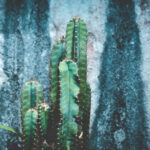 Exploring the Symbolic Meanings of Giving Succulent Plants as Gifts
Exploring the Symbolic Meanings of Giving Succulent Plants as GiftsRemember that succulents should only be a small part of your rabbit's overall diet, which should primarily consist of hay, fresh vegetables, and a limited amount of pellets
When it comes to providing a healthy and balanced diet for your rabbit, it's important to consider the different types of foods that are safe and suitable for them to consume. While succulents may seem like an enticing option due to their vibrant colors and interesting textures, it's crucial to understand their impact on your rabbit's health.
Are succulents safe for rabbits to eat?
While some succulents are safe for rabbits to consume in small quantities, it's crucial to exercise caution and do your research before introducing them into your rabbit's diet. Some succulents may contain toxic compounds that can be harmful to your furry friend.
Which succulents are safe for rabbits?
- Hens and chicks (Sempervivum spp.): This succulent is safe for rabbits and can be offered as an occasional treat. However, ensure that the plant is free from pesticides or any harmful chemicals.
- Prickly pear cactus (Opuntia spp.): The pads and fruits of this succulent can be given to rabbits in small amounts. Remove any spines or thorns before offering them as a snack.
- Spider plant (Chlorophytum comosum): While not a succulent in the strictest sense, spider plants are safe for rabbits and can be a tasty addition to their diet. However, ensure that the plant is free from any chemicals or pesticides.
Which succulents are toxic to rabbits?
- Jade plant (Crassula ovata): This popular houseplant is toxic to rabbits and should be kept away from them at all times.
- Aloe vera (Aloe barbadensis): Although aloe vera has many beneficial properties for humans, it is toxic to rabbits and should never be fed to them.
- Pencil cactus (Euphorbia tirucalli): This succulent contains a toxic milky sap that can cause severe health issues for rabbits if ingested.
How to offer succulents to rabbits?
If you decide to offer safe succulents to your rabbit, it's important to do so in moderation. Introduce them gradually and monitor your rabbit for any adverse reactions. Always ensure that the plants are organic, free from pesticides, and thoroughly washed before feeding them to your rabbit. Additionally, consult with a veterinarian or a knowledgeable expert to ensure the safety of the succulents you plan to offer.
Remember:
- Always prioritize hay as the main component of your rabbit's diet.
- Offer a variety of fresh vegetables to provide essential nutrients.
- Limit the amount of pellets, as they should only comprise a small portion of your rabbit's diet.
- Consult with a veterinarian for specific dietary recommendations based on your rabbit's individual needs.
By understanding which succulents are safe for rabbits and how to offer them in moderation, you can ensure that your furry friend stays healthy and happy while enjoying the occasional succulent treat.
Frequently Asked Questions
Are succulents safe for rabbits to eat?
No, many succulents are toxic to rabbits and should not be consumed. It is best to avoid feeding succulents to your rabbit.
Can rabbits eat any type of succulents?
No, rabbits should not eat any type of succulents as they can be harmful to their health. It is important to provide them with a diet that consists of safe and appropriate foods.
What are some safe alternatives to feed rabbits?
Rabbits can safely eat a variety of fresh vegetables, hay, and pellets that are specifically formulated for their dietary needs. It is always recommended to consult with a veterinarian for a proper diet plan for your rabbit.
What should I do if my rabbit accidentally eats a succulent?
If your rabbit has ingested a succulent, it is important to contact your veterinarian immediately. They will be able to assess the situation and provide necessary guidance or treatment to ensure your rabbit's well-being.
If you want to read more articles similar to Are Succulents Safe for Rabbits to Eat?, you can visit the Uses and Benefits category.


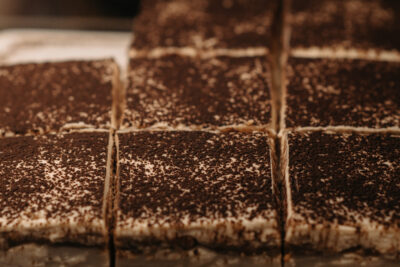
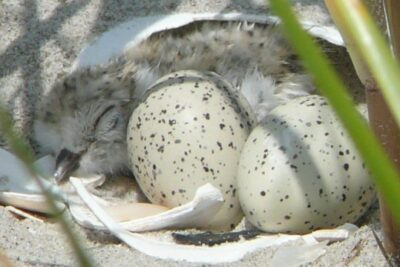

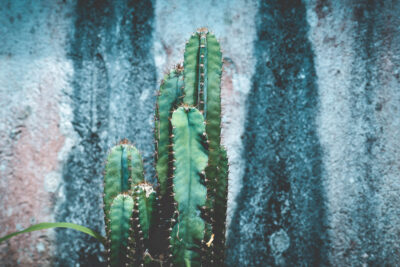
You Must Read